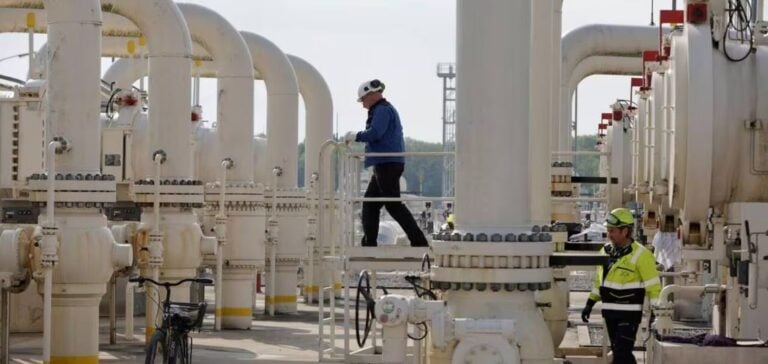Austria, still heavily dependent on Russian gas, has announced the creation of a commission to assess ways of reducing this critical dependence. Currently, 90% of imported gas comes from Russia, a situation that is problematic for the economy and national security. Environment Minister Leonore Gewessler said the commission would analyze the supply contract signed between Gazprom and OMV, the Austrian oil and gas company, which was extended in 2018 until 2040.
Transparency and energy security
The contract between Gazprom and OMV, signed under the watchful eye of former Chancellor Sebastian Kurz and Russian President Vladimir Putin, has never been disclosed to the public, citing reasons of private law. However, the Ministry of the Environment has obtained access to the document for the commission. It will have to determine whether there are legal means of breaking free from this agreement without risking heavy penalties, while exploring alternative supplies to ensure a safe and efficient energy transition.
OMV’s Diversification Strategy
OMV, a pioneer in gas contracts with the Soviet Union since 1968, claims to have diversified its sources of supply since the start of the conflict in Ukraine. Despite this, Austria still imports the vast majority of its gas from Russia, a situation criticized by Ukraine and other European countries. The commission will therefore also have to examine the effectiveness of these diversification efforts and propose strategies to speed up the process.
A Complex Political Context
The controversial 2018 contract had been signed in a tense political context, with a government coalition including right-wing and far-right parties perceived as close to the Kremlin. Today, with the ecologists in government, a new political dynamic is taking shape. The commission will also have to shed light on the political circumstances of the time and their impact on current energy decisions.
A Necessary Transition Before 2027
The European Union has recommended that its member states move away from dependence on Russian gas by 2027. For Austria, this objective seems ambitious but necessary. The commission’s task will be to present its conclusions in the autumn, with a view to defining a clear roadmap out of this energy impasse. This initiative marks a crucial turning point for Austrian energy policy, and could serve as a model for other European countries facing similar challenges.
Austria is at a critical crossroads in its energy policy. The establishment of this commission demonstrates a strong desire to diversify its energy sources and reduce its dependence on Russia, while ensuring transparency and security for its economy and population. The results expected in the autumn will be decisive for the country’s energy future and its alignment with European Union targets.





















